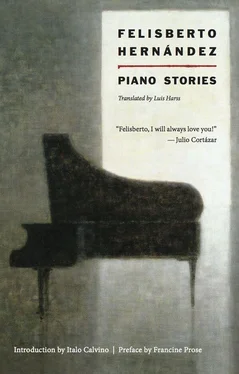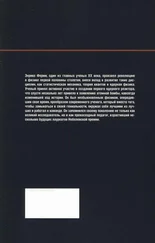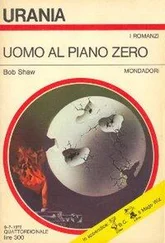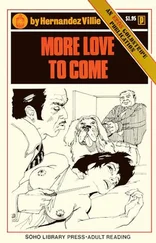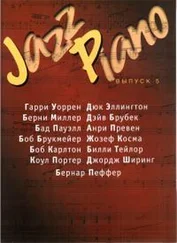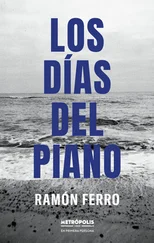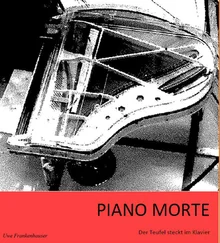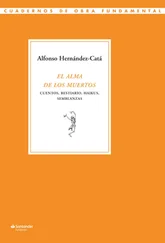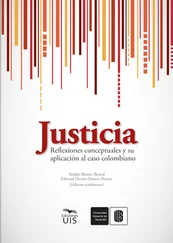Felisberto Hernandez - Piano Stories
Здесь есть возможность читать онлайн «Felisberto Hernandez - Piano Stories» весь текст электронной книги совершенно бесплатно (целиком полную версию без сокращений). В некоторых случаях можно слушать аудио, скачать через торрент в формате fb2 и присутствует краткое содержание. Год выпуска: 2014, Издательство: New Directions, Жанр: Современная проза, на английском языке. Описание произведения, (предисловие) а так же отзывы посетителей доступны на портале библиотеки ЛибКат.
- Название:Piano Stories
- Автор:
- Издательство:New Directions
- Жанр:
- Год:2014
- ISBN:нет данных
- Рейтинг книги:4 / 5. Голосов: 1
-
Избранное:Добавить в избранное
- Отзывы:
-
Ваша оценка:
- 80
- 1
- 2
- 3
- 4
- 5
Piano Stories: краткое содержание, описание и аннотация
Предлагаем к чтению аннотацию, описание, краткое содержание или предисловие (зависит от того, что написал сам автор книги «Piano Stories»). Если вы не нашли необходимую информацию о книге — напишите в комментариях, мы постараемся отыскать её.
Piano Stories
Piano Stories — читать онлайн бесплатно полную книгу (весь текст) целиком
Ниже представлен текст книги, разбитый по страницам. Система сохранения места последней прочитанной страницы, позволяет с удобством читать онлайн бесплатно книгу «Piano Stories», без необходимости каждый раз заново искать на чём Вы остановились. Поставьте закладку, и сможете в любой момент перейти на страницу, на которой закончили чтение.
Интервал:
Закладка:
Our affair had begun, as so often happens, because of an old family relationship. (Celina had studied the piano with my mother sitting on her lap. My mother was then about four years old.) This relationship had been interrupted before I was born. When the two families met again and exchanged news of recent events, I was one of them. And Celina had made me want to be an interesting event for her. In spite of her unsmiling sternness, the way she looked at me and fussed over me tempted me to search for signs of the affection I knew she must be feeling for me. When she spoke to my mother, you could see she was fond of her. During one of our first lessons she told me I looked like my mother. After that, whenever she compared our features, it seemed as though her black eyes transferred some of the warmth inspired by my mother’s features to mine. But once in a while she lingered over mine a bit longer, probably when she was discovering what was new and different about me, and that must have been when I began wanting to hold on to her attention, to make her realize I differed from my mother not only in some of my features but in my way of being. I had a way of standing by a chair, with an arm on the backrest and one leg crossed behind the other, that my mother didn’t have.
Since it was always hard for me to deceive grownups, or at least to sustain my deceit for any length of time, I didn’t think my poses had fooled Celina until once, much later, when I heard her remark to my mother on my natural ability to maintain a good posture. I believed her because just before that they had been discussing the postures people adopted when they slept, and it was true: an affectionate truth, I could almost say, in which she had lovingly enclosed my lie. Celina’s unexpected words surprised and moved me. She had no idea what feelings she had stirred in me. A moment earlier I had been like a glass of still water on a table. Then she had come by and inadvertently jolted the table and the water’s calm had been disturbed.
I couldn’t believe I had managed to fool Celina. I stole a look at her, wondering if she was making fun of me, and then began to ask myself whether I might not really be striking poses without meaning to. Finally I remembered that when she had made me want to make her like me, when I had begun to enjoy imagining what she could be thinking of me because I had started to believe I might be the least bit interesting to her, I had decided to watch my posture and try to find constant new ways in which to seem original to her. Remembering this slowly calmed me, as if the water in the glass unconsciously disturbed by Celina had settled again. Now that I had managed to fool her — as grown-ups fooled others, especially when they were visiting — I felt more in possession of myself, and I would probably even find a way to have her fall in love with me. Of course, it would be very difficult, and I was too shy to dare ask anyone how it was done. I would have to go on just being interesting and original and wait for her to make the first move. Meantime I would be watching for signs of affection and hiding in the bushes that I assumed would line the road leading to her. Besides, if she had the feelings I thought she had, she would see into my silence and guess my wish. I couldn’t help trying to imagine what such a stern person would be like when she softened and yielded to someone she loved. Perhaps her gnarled hand, the one with the scar on it, would be capable of a gentle caress, in spite of the thick black sleeve stretching down to her wrist. Perhaps the whole scene would take on the beauty and charm of the objects around us when struck by the sounds rising from the piano. Perhaps caressing me she would bend forward, as she did to light the lamp, and meantime the piano, like an old man half asleep, wouldn’t mind holding the lamp on its back.
Now Celina had torn up all the roads between us, she had torn up secrets before knowing what they contained. Of course, grownups were full of secrets: the words they spoke out loud were always surrounded by others you couldn’t hear. Sometimes they pretended to agree on something even though they were saying different things, and it was as surprising as if they thought they were face to face while turning their backs on each other or in the same room while wandering far apart. Being a child, I was free to roam among the chairs where the grownups sat — and also among the words they used. But now I was no longer in a mood for uncovering secrets. After what had happened with the pencil, Celina and I would have to tread lightly in our relations, as if picking our way through broken glass. From then on, I realized sadly, things between us would be clear but desolate. My illusions had been as violently shattered as if the light had come on in the middle of a dramatic scene in a movie: to her I was just a child, as my mother had been when Celina held her on her lap.
I got through that night — in spite of my grandmother’s threats in the street — without a beating. The road home was dark. My grandmother helped me make out the shapes we passed. Some were shapes that stayed in place: columns, stones, tree trunks. Others were persons coming in the opposite direction. There was even a stray horse. While we were busy with these things, my grandmother’s anger died down and her threats were blotted out, like more vanishing shapes, or were carried off on the back of the stray horse.
At home they noticed I was sad and attributed it to the unaccustomed punishment Celina had inflicted on me. But they never suspected what had been going on between us.
It was on one of those sad nights, in bed, as my thoughts edged toward sleep, that I began to feel the presences in the house around me, like furniture that kept changing position. From then on I often had that thought at night: they were furniture that could hold still or move, at will. The ones that held still were easy to love because they made no demands on you, while the ones that moved demanded not only love and kisses but harsher things, and were also likely to spring suddenly open and spill out on you. But they did not always surprise you in violent or unpleasant ways: some provided slow, silent surprises, as if they had a bottom drawer that gradually slid open to reveal unfamiliar objects. (Celina kept her drawers locked.) I even knew some persons with closed drawers who were nevertheless so pleasant that if you listened quietly you heard music in them: they were like instruments playing to themselves. Those persons had an aunt who was like a wardrobe in a corner, facing the door: there was nothing she didn’t catch in her mirrors and you couldn’t even dress without consulting her. The piano was a nice person. When I sat close to him, pressing a lot of his white or black fingers with a few of mine, he let out drops of sound, and combining the sounds with our fingers we both felt sad.
*
One night I had a strange dream. I was in Celina’s dining room. There was a family of blond furniture: the sideboard and a table with its chairs around it. Then Celina was running around the table. She looked a bit different and skipped along, like a little girl, and I chased her, holding a stick with the tip wrapped in a piece of paper.
II
Something unexpected has happened and I’ve had to interrupt my story. For days now I’ve been at a standstill. Not only am I unable to write, but it’s a great effort for me to live in the present, to live forward. Without meaning to, I had started to live backward, and there came a moment when I couldn’t even live many of the events of that past time but could only concentrate on a very few, perhaps a single one, and I preferred to spend night and day just sitting or lying here. In the end I had lost even my desire to write. And, as it happens, this desire was my last tie to the present. But before this tie came loose, the following occurred: I was quietly enjoying one of those nights of the past. Although I had been stepping slowly, like a sleepwalker, suddenly I tripped over the wisp of an idea and fell into a moment full of events. The place into which I’d fallen was like an irresistible center of attraction, where a number of muffled secrets lying in wait for me seized and tied down my thoughts, and it has been a struggle ever since. My first impulse, after recovering from my surprise, was to give the secrets away. Then I started to feel more relaxed and to find a certain cozy pleasure in dwelling on those secrets, watching them silently at work, and I let myself sink into the pleasure without bothering to free my thoughts. That was when my last ties to the present gradually came undone. But at the same time something else happened: among the thoughts tied down by the muffled secrets there was one that broke loose on its own after a few days. What I was thinking just then was, “If I spend much longer in the past I’ll never get out again and I’ll go mad: I’ll be like one of those unhappy souls trapped by a secret in his past for the rest of his life. I’ve got to row with all my might back to the present.”
Читать дальшеИнтервал:
Закладка:
Похожие книги на «Piano Stories»
Представляем Вашему вниманию похожие книги на «Piano Stories» списком для выбора. Мы отобрали схожую по названию и смыслу литературу в надежде предоставить читателям больше вариантов отыскать новые, интересные, ещё непрочитанные произведения.
Обсуждение, отзывы о книге «Piano Stories» и просто собственные мнения читателей. Оставьте ваши комментарии, напишите, что Вы думаете о произведении, его смысле или главных героях. Укажите что конкретно понравилось, а что нет, и почему Вы так считаете.
